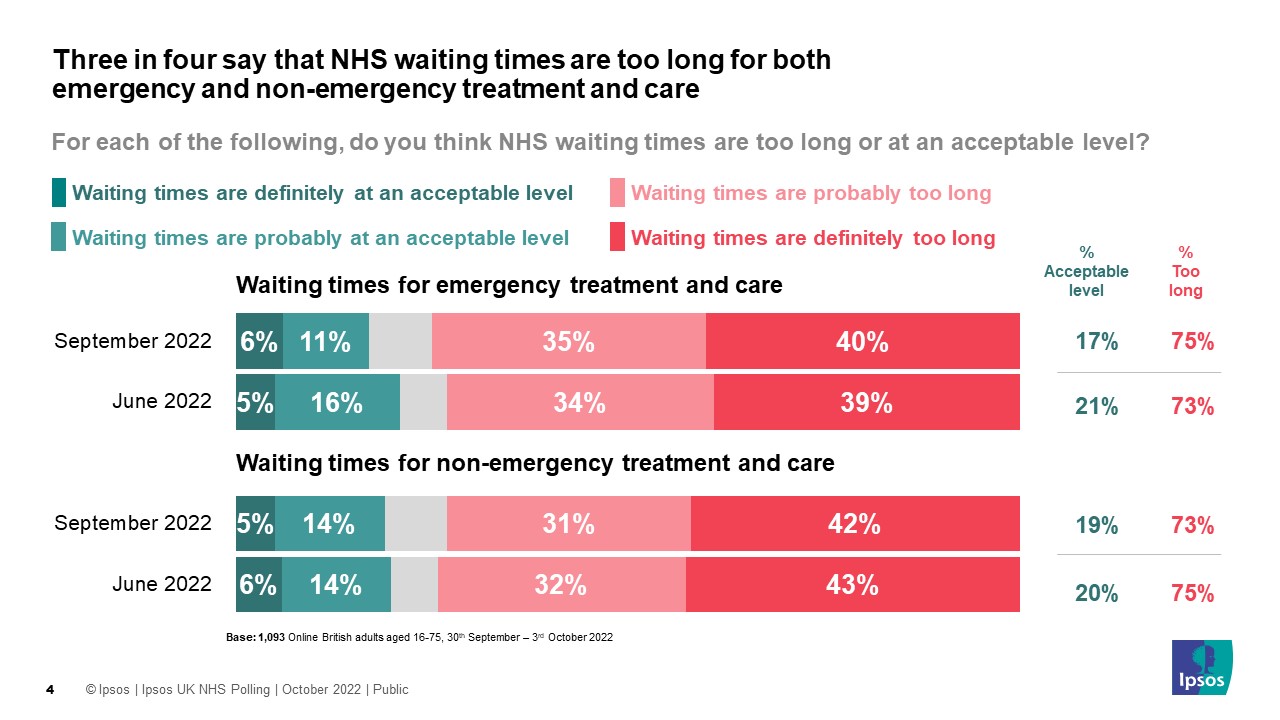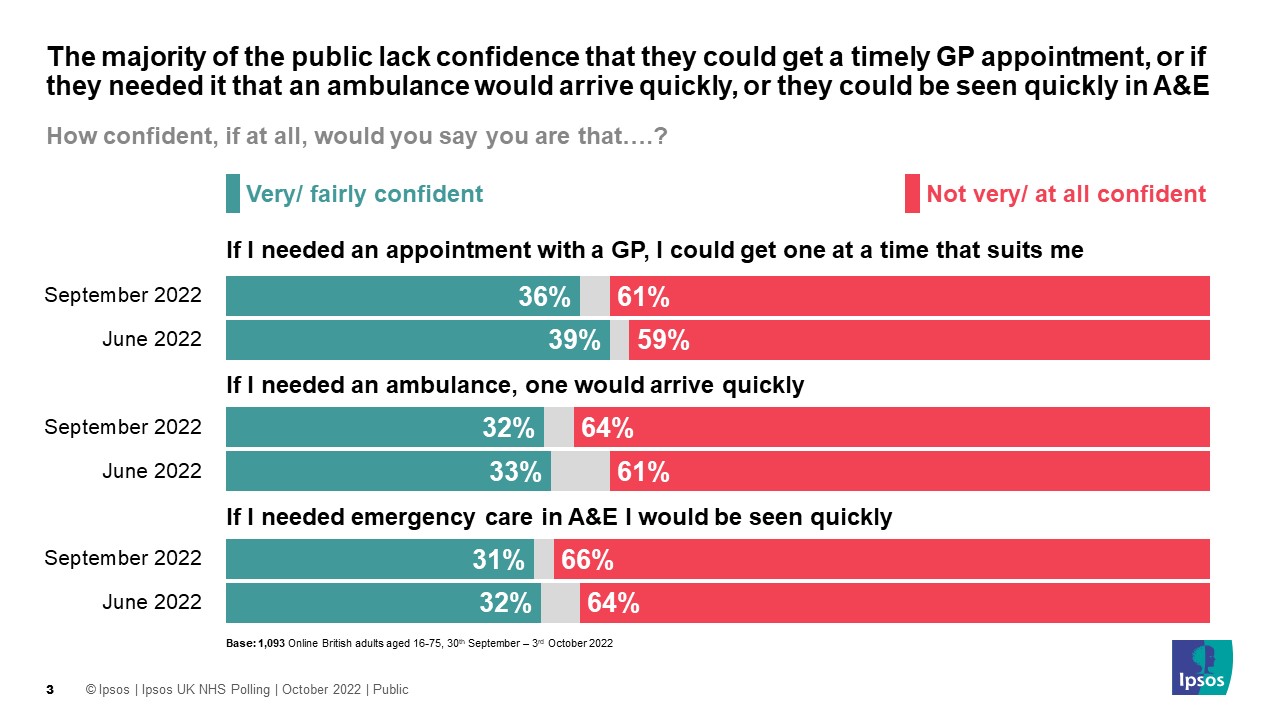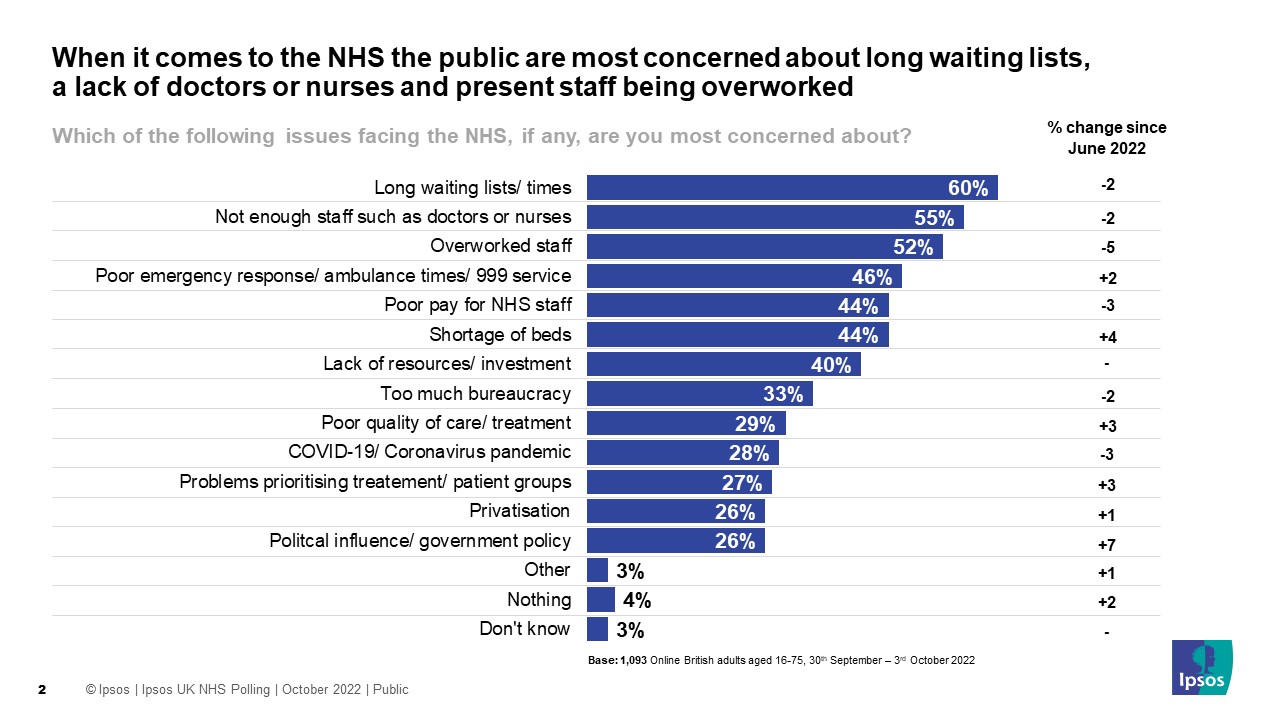Three in four say waiting times for NHS emergency treatment are too long while a majority are not confident they will be seen quickly in A&E
New research by Ipsos in the UK shows a significant majority of Britons think NHS waiting times for emergency treatment and care are too long (77%) while a similar proportion believe waiting times for non-emergency NHS treatment are too long (74%). Only 15% believe emergency care wait times are at an acceptable level, 1 in 5 (20%) say the same for non-emergency care.

Thinking about what would happen if they needed care, around two-thirds are not confident they would be seen quickly if they needed emergency care in A&E (67%), while a similar proportion say they lack confidence that an ambulance would come quickly if needed (65%). Six in 10 (60%) are not confident that they could get a GP appointment at a time that suits them if needed. There has been little change in expectations since the questions were last asked in June of this year.

With such a high proportion thinking waiting times are too long, and few expecting to get the care they need quickly, it may come as no surprise that Britons are most likely to be concerned about long waiting lists/times (62%) from a list of issues facing the NHS. More than half are concerned about a lack of staff such as doctors and nurses (57%), overworked staff (57%), poor emergency response/ambulance times/999 service (52%), and a shortage of beds (51%, up 11pp since June).

While still a significant proportion, Britons are least likely to be concerned about privatisation (23%) and political influence/government policy (27%).
Anna Quigley, Head of Health and Social Care at Ipsos, said:
These results show that the public remain worried about being able to access NHS care when they need it. They recognise the scale of the problems facing the NHS, and rightly identify workforce challenges as a key barrier to addressing the backlog.
Technical note:
- Ipsos interviewed a representative quota sample of 1,030 adults aged 16-75 in Great Britain. Interviews took place on the online Omnibus 14th-17th October 2022. Data has been weighted to the known offline population proportions. All polls are subject to a wide range of potential sources of error.



